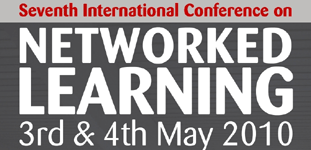

Networks as platforms for expansive development – examples from a school development programme
Silke Geithner
Dresden University of Technology, Dresden, Germany
Klaus-Peter Schulz
Chemnitz University of Technology, Chemnitz, Germany
Abstract
In the subsequent study we examine how collective activity in networks initializes learning and change of the network itself and the participating organizations. In particular we discuss different learning stages that can at least lead to “expansive development” – a concept brought about by Engeström (1987). The research is based on an empirical study of 13 inter-organizational school networks in Germany. The networks have been created with the intention of bringing about organizational development within the schools. In our paper we refer to an activity theoretic view on learning and development (e.g. Engeström 1987, 2001, 2005; Chaiklin et al. 1999). Therefore we consider learning as individual and collective activity as described with the learning steps from Gregory Bateson (1972) and the theory of expansive learning from Yrjö Engeström (1987, 2001). Furthermore our network approach focuses on the social aspects of interaction in networks. Results of a quantitative survey assessing the performance of the 13 networks are presented (a descriptive, complete survey within 96 participants of the networks). A subsequent qualitative survey of two highly innovative networks (20 semi-structured interviews) takes into account the learning effects in school practice. The following questions were asked: Motivation and management of the network process within the participating organizations; issues to be discussed on the network platform; development process, cooperation and communication within the network, transfer from network ideas and the results of operational practice in the schools and development process (benefits and difficulties) in the schools. Our main findings distinguished two levels of consideration; the learning platform where representatives of the schools regularly meet and the operational work at the schools. The perception of how the representatives in the network learned, how the colleagues who were not directly involved at the schools learned and how the school as a whole learned was appreciated differently. Outcomes vary from “exchange of new ideas” to “implementation of school development”. The results of this study provide guides on how to design more effective learning networks. Based on the results we will develop an analytical scheme representing learning in the network platforms compared to the development processes in the schools. These results are assessed in the light of the theory of expansive learning from Engeström. The conceptual model distinguishes between network and parent organization, its interrelated learning effects and the different stages of learning and development.
| About NLC | Welcome Messages| Acknowledgwments | Conference Proceedings| Keynote Speakers| Index of Presenting Authors| Contact |